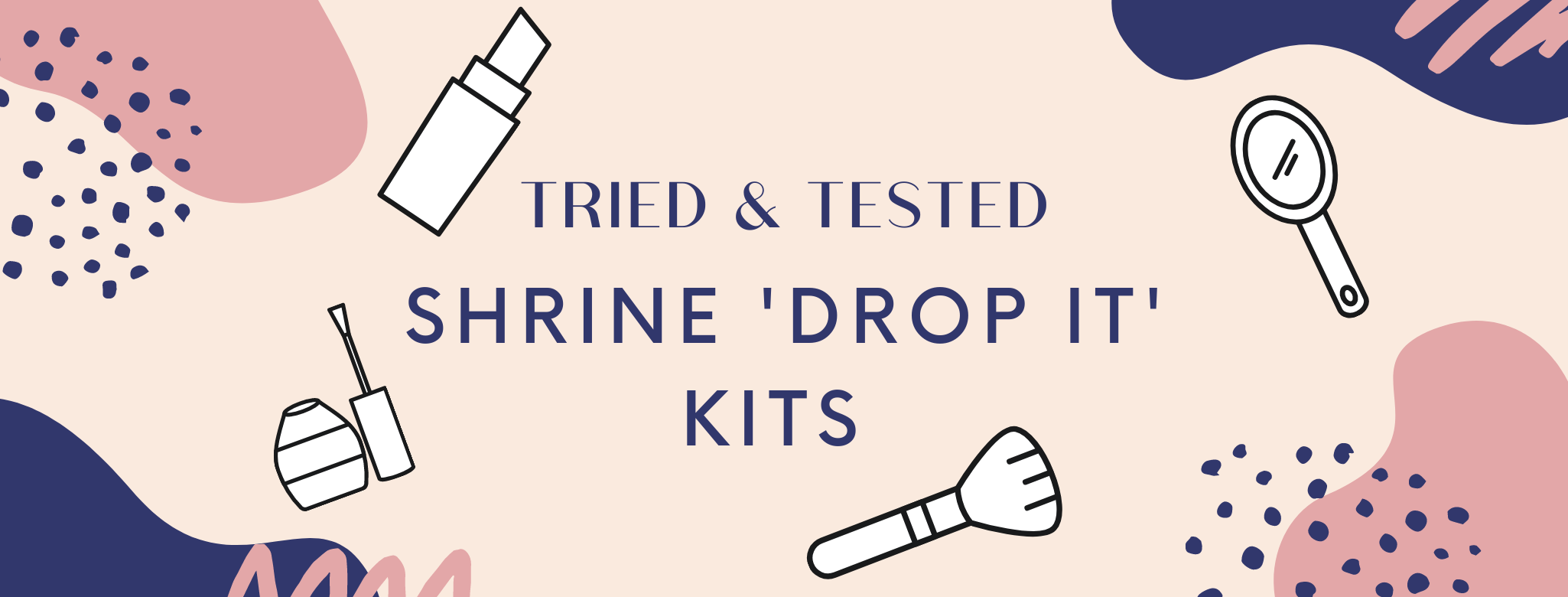Anyone with bleached hair knows what a sad day it is when the toner starts to fade and the brassiness exposes itself. No amount of purple shampoo can seem to bring that fresh from the salon ashy-ness.
Due to my hair being almost black naturally, red and copper undertones really come through when its bleached. It often takes 2-3+ rounds of bleach to achieve a colour light enough for the tone I desire, and with that comes damage.
Finding a toner that banishes the brass whilst keeping the condition of my hair has always been a challenge, which I why I decided to try something a bit different and turn to Shrine’s semi-permanent Drop It kits.

In order to help the brassy messy that was my hair, thanks to basic colour theory I knew I needed to combine the blue and purple to counteract the red and copper undertones.
Shrine recommends adding two drops purple and one drop blue to my conditioner, but due to how thick my hair is I decided to double up the dose to give it a little extra help.
After shampooing and towel drying my hair, I saturated it in the conditioner and drops mixture and left it on for 10 minutes.

After rushing thorough my hair and rinsing out the conditioner mixture with warm water, I styled it as normal and was more than impressed by the results.
Any brassiness had been transforming into ashy tones, making my hair look significantly lighter than before.
I would even go as far as to say that the colouring was so good it looked almost salon fresh, with the below photos showing just how much my hair had changed after 10 minutes.
Click through to see the before and afters of using the product:
The only complaint would be that, despite being mixed with conditioner, the drops made my hair feel slightly drier afterwards. For that reason, I would recommend using a deep conditioning mask instead of a regular conditioner to apply the drops.
One thing’s for sure: Shrine drops are going to become a staple in my hair routine.
By Lollie Hancock
Contact: platform.fashioneditor@gmail.com
Note: all products paid for by writer









